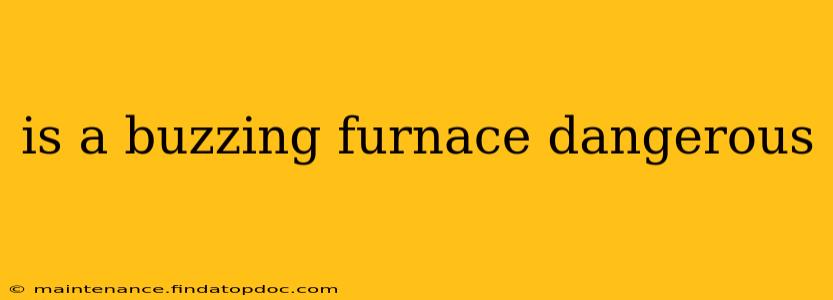A buzzing furnace can be a disconcerting sound, immediately raising concerns about safety and potential problems. While not every buzz is a cause for alarm, ignoring it could lead to more significant issues down the line. This guide will help you understand the potential causes of buzzing in your furnace, assess the level of danger, and determine when professional help is necessary.
What Causes a Buzzing Furnace?
A buzzing sound emanating from your furnace can stem from several sources, each with varying degrees of severity. Let's explore the most common culprits:
Loose Electrical Connections or Wiring:
One of the most frequent reasons for a buzzing furnace is loose electrical connections within the unit. Over time, vibrations and thermal expansion can loosen wires, causing them to make contact intermittently and produce a buzzing sound. This is potentially dangerous as it can lead to sparking, overheating, and even a fire. Immediate action is recommended if you suspect loose wiring.
Faulty Blower Motor:
The blower motor is responsible for circulating heated air throughout your home. If the motor bearings are worn or damaged, they can create a buzzing or grinding noise. While not always immediately dangerous, a failing blower motor can eventually overheat and fail completely, leaving you without heat.
Problems with the Ignition System:
Your furnace's ignition system uses electrical components to ignite the burners. A malfunctioning igniter, possibly due to wear or a buildup of debris, can generate a buzzing or clicking sound. This might indicate a safety issue if the system fails to ignite properly, resulting in gas leaks.
Issues with the Gas Valve:
Similar to the ignition system, problems with the gas valve can cause a buzzing sound. A faulty gas valve might not be regulating gas flow properly, leading to inconsistent heating or, worse, a gas leak. This is a serious safety concern and requires immediate attention from a qualified technician.
Heat Exchanger Problems:
The heat exchanger is the critical component that transfers heat from the combustion process to the air circulating through your furnace. If the heat exchanger is cracked or damaged, it can produce a variety of noises, including a buzzing sound. A cracked heat exchanger is dangerous because it can allow carbon monoxide (CO) to leak into your living space, leading to potentially fatal consequences.
Is a Buzzing Furnace Immediately Dangerous?
The immediate danger posed by a buzzing furnace depends entirely on the underlying cause. While a loose wire might not immediately cause a catastrophic event, it dramatically increases the risk of fire. A cracked heat exchanger poses an immediate threat to your health due to the potential for carbon monoxide poisoning. Therefore, it's crucial to identify the source of the buzz to assess the level of risk.
When Should I Call a Professional?
You should contact a qualified HVAC technician immediately if you notice a buzzing sound accompanied by any of the following:
- Smell of gas: This indicates a potential gas leak, a serious safety hazard.
- Unusual heating patterns: Inconsistent heating or lack of heat altogether suggests a more significant problem.
- Visible sparking or arcing: This points to electrical issues that require immediate attention.
- Increase in your energy bills: A consistently buzzing furnace could be working harder than necessary, leading to increased energy consumption.
Preventing Future Problems:
Regular furnace maintenance is key to preventing many of these issues. Annual inspections by a qualified technician can identify potential problems before they escalate and lead to costly repairs or dangerous situations.
Disclaimer: This information is for general knowledge and should not be considered professional HVAC advice. Always consult a qualified HVAC technician for diagnosis and repair of any furnace problems. Your safety and well-being are paramount.
